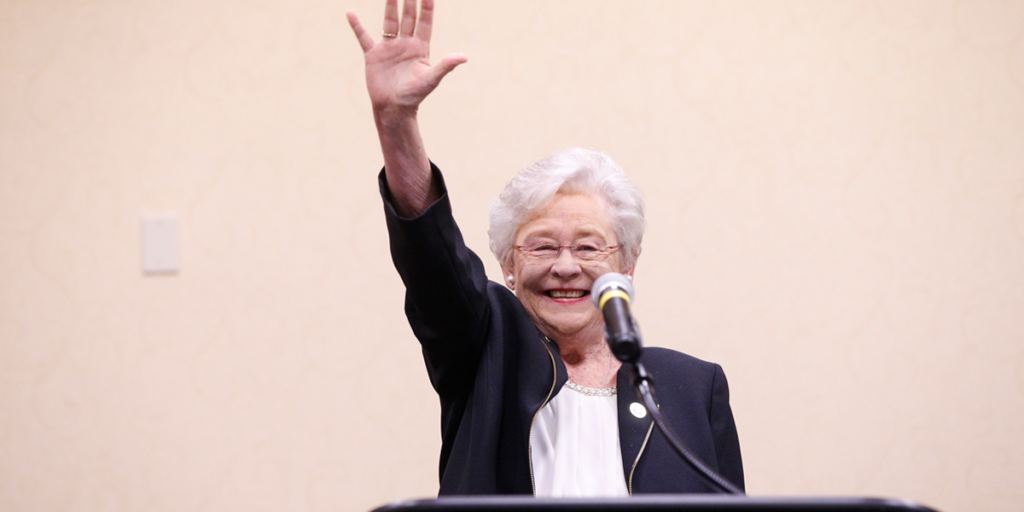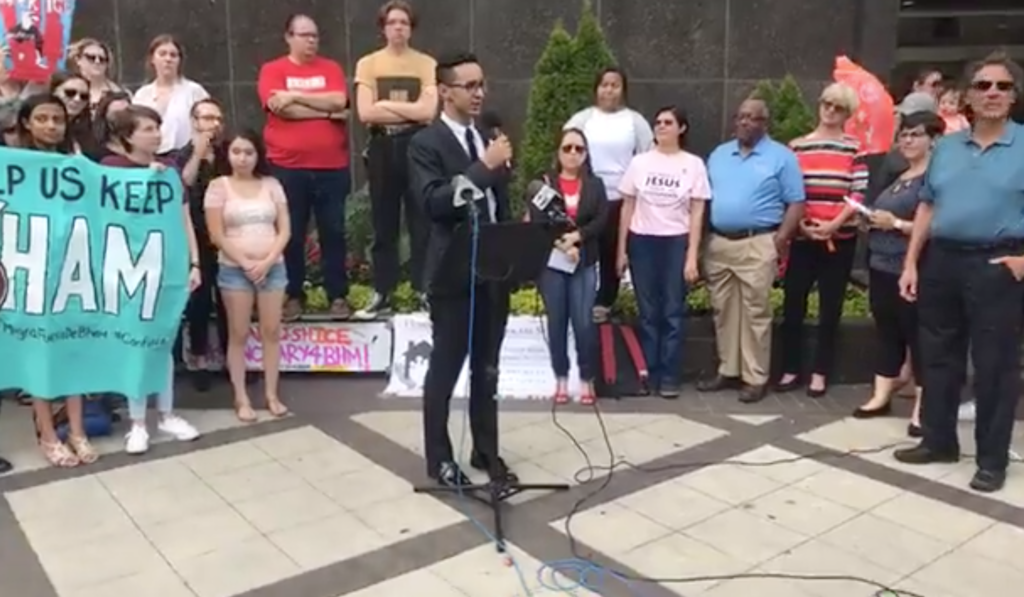Councilman accuses Fairhope Mayor Karin Wilson of violating state law

Fairhope City Councilman Kevin Boone has accused Mayor Karin Wilson of violating state law after she used the city’s communication system to display a blog post pushing the her version of a petition to change the city’s form of government. Boone said he submitted evidence in early July of what he thinks is a violation of Alabama state law to Baldwin County District Attorney Bob Wilters. “The paperwork has been sent in to the proper authorities to do an investigation,” Boone told WABF. “Whether or not it’s going to be done, I don’t know.” “I did this not so much as a councilman, but as Kevin Boone,” he continued, emphasizing that he did not take action on behalf of the council, but as a private citizen. When two petitions offering two different changes to Fairhope’s form of city government began circulating in June Wilson used the city’s Everbridge communication system, to display a blog post pushing her version of a petition to change the city’s form of government. According to the Fairhope municipal website, “this system enables us to provide you with critical information quickly in a variety of situations, such as severe weather, unexpected road closures, missing persons and events happening in your area.” According to Boone, and The Courier, this violates several Alabama laws including Alabama Code Title 17-17-4 which states: “Any person who attempts to use his or her official authority or position for the purpose of influencing the vote or political action of any person shall be guilty, upon conviction, of a Class C felony.” Class C felonies in Alabama carry a sentence of up to 10 years in state prison. “Section 17-17-5 goes further: “No person in the employment of the State of Alabama, a county, a city, a local school board, or any other governmental agency, whether classified or unclassified, shall use any state, county, city, local school board, or other governmental agency funds, property, or time, for any political activities.” “According to the subsection, political activities include: “a. Making contributions to or contracting with any entity which engages in any form of political communication, including communications which mention the name of a political candidate. “b. Engaging in or paying for public opinion polling. “c. Engaging in or paying for any form of political communication, including communications which mention the name of a political candidate. “d. Engaging in or paying for any type of political advertising in any medium. “e. Phone calling for any political purpose. “f. Distributing political literature of any type. “g. Providing any type of in-kind help or support to or for a political candidate.” “17-17-5 goes on to state that “It shall also be unlawful for any officer or employee to coerce or attempt to coerce any subordinate employee to work in any capacity in any political campaign or cause. Wilson responded to The Courier‘s reports, saying “Supporting a referendum for a vote by a legislative body or by voters is NOT considered a ‘political activity.’ Regardless, there were no public funds used nor the improper use of public property.” She then attached a “2003 Alabama Attorney General’s Opinion involving whether public school systems and colleges could expend public funds to advocate on behalf of ballot initiatives and a 2015 circuit court ruling involving the Baldwin County Board of Education’s advocacy for the Build Baldwin Now campaign,” the report continued. The Attorney General at the time, Bill Pryor, ruled that state law did not forbid the activity. No word has been reported as to whether or not the district attorney’s office will investigate. Wilson under fire Wilson has been under fire from the City Council repeatedly this year. In March, Wilson received an email from Fairhope Police Chief Joseph Petties, after a controversial hiring decision she made in February without the council, or police chief’s approval, later retracting the hire. Wilson again came under fire in May with Fairhope’s Financial Advisory Committee (FAC), after sending an e-mail to committee chairman Chuck Zunk telling him the city budget was ultimately her responsibility, and that she would let the committee know if and when she needed their input. Earlier in June, Petties announced his retirement at a city council meeting after saying Wilson bullied him and made false accusations against him. In an unanticipated turn of events, council members emphatically tore up Petties’s resignation letter, refusing to accept his resignation. They said they would look into whether or not the council could pursue efforts to pry police supervisory power from Wilson.
Shocking new poll out with completely obvious general election results

Breaking news alert: According to a poll released by Alabama’s own Cygnal polling firm, Kay Ivey is going to win the Alabama general election and keep her place in the governors office. According to the release by Cygnal, “The survey conducted July 24 – 25, with 1,027 likely general election voters, shows Republicans with a 14-point lead over Democratic candidates, with incumbent Governor Kay Ivey leading Tuscaloosa Mayor Walt Maddox 56% to 42%.” Pause for dramatic effect. Think about it… who could have possibly predicted such an outcome? Then, you realize anyone with the ability to play the old fashioned grade school greater than or less than game with basic numbers could have predicted it. Why? Because voter registration, voter turn-out… you know, the little things in political life add up to victory. Yes, people have talked about a “blue wave” across the country this cycle. But those people are “kooky dukes,” as Maui favorite character Moana would say, if they actually think a blue wave is coming to Alabama. And if you say “Doug Jones,” I’m going to give you some side eye and smile politely while refusing to tell you how that’s irrelevant here. The fact is: Alabama is a conservative state. We like our candidates and our elected officials, pro-life, pro-Second Amendment, for smaller government and lower taxes, with a big old “R” behind their names. I don’t see any circumstances in which Kay Ivey doesn’t win the election. Though if there were a candidate who could capitalize on a bad year for Republicans it would be Walt Maddox with his energy, likability and experience but alas it’s not the right time or place for him. Though his candidacy, like Jones’, will help strengthen the very weak Democrat party throughout the state and help them down the road with local and legislative races. Not his fault he doesn’t stand a chance… numbers stand in his way. If you’re curious to see those number, here they are via the Secretary of the State’s website, from all of the general elections in the last 10 years. And in the state of Alabama, Republicans have a significant advantage. On that note, I’m going to go ahead and call the race early. Kay Ivey continues to be governor, and every Republican straight on down the ticket will win too. See ya at the polls!
16 coalition groups call on Randall Woodfin to take action on ‘trust and public safety’ order

On Tuesday, the Alabama chapter of the Council on American-Islamic Relations (CAIR-Alabama), the state’s largest Muslim civil liberties and advocacy organization, and Adelante Alabama Workers Center, which unites day laborers, domestic workers, and other low-wage and immigrant workers and their families in the Birmingham area, along with other coalition partners, faith and civic leaders, met outside of the Birmingham City Hall where they called on Birmingham Mayor Randall Woodfin to honor his commitment to be on the front lines of resistance to President Donald Trump‘s polices. There they endeavored to hold the Mayor to the progressive mandate he was elected on by calling him to take action on the proposed “Trust and Public Safety” order. The order would prevent Birmingham from expending its own local resources on enforcing federal immigration policies. In addition to saving the city money, this policy would also promote trust in local law enforcement and protect public safety for all residents, regardless of immigration status. It does not interfere with any state or federal laws. CAIR-Alabama and Adelante met with Mayor Woodfin back in April to discuss this proposal, but after months of delays from the city, they two came together with their coalition partner organizations to ask Woodfin to take action. “We have been working with the Mayor on this proposal for months, but with the federal administration’s harsh enforcement of a ‘zero-tolerance’ immigration policy we’ve begun to see fear and anxiety reflected in our communities,” said Ali Massoud, CAIR-Alabama Government Affairs Coordinator. “The Mayor has expressed ample support for marginalized black and brown populations, and now we are asking him to keep his promises and pass this executive order.” He added, “Birmingham has a robust immigrant population, but this executive order isn’t just for them, it’s for everyone. Passing the ‘Trust and Public Safety’ order promotes trust between communities of color and local law enforcement, making the city safer for all of us.” Addressing the Mayor directly, Cesar Mata, Adelante Alabama Worker Center Volunteer said, “My community does not want to live in fear. We do not want to continue to suffer family separation. Our community wants to feel safe when we talk to the police. We need an official policy from the City of Birmingham that will protect all families. The “Fostering Trust and Promoting Public Safety and Civli Rights for All City Residents” executive order can help you keep the promise you made to keep us safe. We know Birmingham can do what is right. Mr. Mayor, you can decide what side of history you are on. All of Birmingham’s citizens still believe in you.” The following groups and organizations spoke at the event: Adelante Alabama Worker Center CAIR-Alabama Alabama Coalition for Immigrant Justice Black Lives Matter Birmingham Faith in Action Alabama La Casita Greater Birmingham Ministries National Lawyers Guild Southern Poverty Law Center NAACP of Alabama Southerners On New Ground Watch the event be live-streamed (previously recorded) below:
Eclectic receives $200,000 grant to expand production facility, creating 20 new jobs

The small town of Eclectic, Ala., located in Elmore County, is the recipient of a $200,000 Community Development Block Grant (CBDG) to assist in expansion of a production facility, creating 20 new jobs. Eclectic will use grant funds to improve the existing roads leading in and out of the industrial park where Madix Inc. is located. Madix, which designs and manufactures displays, panels and platforms for retail stores, intends to expand its facility and create 20 new jobs. The expansion will increase the amount of truck traffic on Middle Road and Madix Drive which have already deteriorated due to heavy use from trucks traveling to and from the facility. Gov. Kay Ivey announced the grant on Tuesday. “Assisting with job creation is a top priority for my administration,” Ivey said. “This grant will enable Eclectic to improve important roads and aid Madix in expanding its production and shipping ability, which will create new jobs.” The project will include an update to 835 feet of Middle Road as well as improvements over the culvert on Madix Drive. The town is contributing $75,256 in matching funds to complete the project. The Alabama Department of Economic and Community Affairs (ADECA) is administering the CBDG from funds made available to the state by the U.S. Department of Housing and Urban Development. “Bringing more jobs to rural Alabama is important to both Gov. Ivey and me,” ADECA Director Kenneth Boswell said. “With the governor’s leadership, ADECA is pleased to partner with Eclectic to improve these roads and increase the number of job opportunities for residents.”
New Homeland Security center to guard against cyberattacks

The U.S. Department of Homeland Security is creating a center aimed at protecting banks, electric companies and other critical infrastructure against cyberattacks — a threat that now exceeds the danger of a physical attack against the U.S. by a hostile foreign group, Secretary Kirstjen Nielsen said Tuesday. The National Risk Management Center will work to quickly identify and address potential threats and improve safeguards across a range of industries, she said. It will prioritize risks to industries that most Americans rely on, like the power grid. It is designed to be a partnership with private companies and federal agencies, with Homeland Security as the lead agency. Nielsen spoke at a cybersecurity summit hosted by government officials that brought CEOs of credit card companies, telecommunications industries and utilities together with the heads of the NSA, FBI and Department of Energy. The summit comes during renewed concern over the possibility of Russian-sponsored meddling in the midterm elections, and criticism of the Trump administration’s efforts on cybersecurity. Sen. Claire McCaskill, D-Missouri announced that Russian hackers tried unsuccessfully to infiltrate her Senate computer network and Sen. Jeanne Shaheen, D-New Hampshire, told The Associated Press that someone contacted her office “claiming to be an official from a country.” She is not up for re-election. President Donald Trump has offered mixed messages on Russian interference in U.S. elections — at times even calling it a “hoax,” though he acknowledged in a recent tweet that the midterms are a likely target. Nielsen said Tuesday the government cannot allow Russian interference again. “Let me be clear on this, any attempt to interfere in our elections is a direct attack on our democracy, it is unacceptable, and it will not be tolerated,” she said. “Mark my words: America will not tolerate this meddling.” Nielsen said Tuesday the threat is not limited to elections, and cannot be underestimated. She cited as examples the credit bureau breach where half of Americans had personal information exposed online, plus the WannaCry ransomware that spread from North Korea to more than 150 countries, and Russian hackers compromised the control rooms of energy companies around the world. “These incidents, though, are only the beginning,” she said. “Rogue regimes and hostile groups are probing critical systems worldwide every moment as we speak. And without aggressive action to secure our networks, it is only a matter of time before we get hit hard in the homeland.” At a summit panel, the heads of MasterCard, AT&T and Southern Company talked about the need to work together to create a systemic solution to secure the internet. Ajay S. Banga, the head of MasterCard, said on the panel that the Wild West days of the internet were great to grow the functionality of it. But it’s time to rein it in. “We need to get it back in control, and take it to a dog trainer and get it trained,” he said. Republished with the permission of the Associated Press.
Jeff Sessions creates national religious freedom task force

U.S. Attorney General, and former Alabama U.S. Senator, Jeff Sessions announced the creation of a religious liberty task force within the U.S. Department of Justice on Monday, citing a “dangerous movement” to erode religious freedom in America. “A dangerous movement, undetected by many, is now challenging and eroding our great tradition of religious freedom. There can be no doubt. This is no little matter. It must be confronted and defeated,”Sessions told attendees of the Department of Justice’s Religious Liberty Summit. “This election, and much that has flowed from it, gives us a rare opportunity to arrest these trends. Such a reversal will not just be done with electoral victories, but by intellectual victories.” “Freedom of religion has been a core American principle from the very beginning of our country – indeed, it is our ‘first freedom.’” Sessions continued. “President Trump promised that he would make preserving and protecting our religious liberty the first priority of his administration. The Department of Justice is committed to assisting with that effort.” The task force will implement “religious liberty guidance” by ensuring all elements of the justice department are holding to the same religious freedom standards in individual cases, policies, regulations and in the operations of the department. Sessions said he will be joined by acting Associate Attorney General Jesse Panuccio and Assistant Attorney General Beth Williams, as co-chairs of the task force. In October, Sessions issued two memoranda within the DOJ; the Religious Liberty Memorandum and the Implementation Memorandum both aimed at protecting and implementing religious freedom practices within the department. The new task force will aid the DOJ’s efforts to implement the memoranda. “As the people in this room know, you have to practice what you preach,” Sessions continued in his speech on Monday. “We are also going to remain in contact with religious groups across America to ensure that their rights are being protected. We have been holding listening sessions and we will continue to host them in the coming weeks.”
House Majority Leader Nathaniel Ledbetter elected Vice-Chair of Southern Legislative Conference Cmte

Rainsville-Republican, State House Majority Leader Nathaniel Ledbetter has been elected vice chair of the Economic Development, Transportation & Cultural Affairs Committee of the Southern Legislative Conference (SLC) at the group’s 72nd annual meeting, he announced on Tuesday. “For the past several years, Alabama has been among the leading states in job creation and economic development, and we were recently ranked by one respected magazine as having the best business climate in the nation,” Ledbetter said. “Given our recent successes, I am proud to serve as vice chair of a group that focuses its efforts on economic issues and related areas like infrastructure needs. It is my hope that this position will allow us to gather best practices in economic recruitment and industrial development and learn ways Alabama can build even further upon its already impressive growth.” As vice chair, Ledbetter will assist the committee’s chair, Moss Point-Republican, Mississippi State Rep. Manly Barton, in guiding the committee’s policy focus and projects and shaping its 2019 annual meeting programming. At the SLC meeting, the committee’s sessions focused on the importance of site selection for promoting growth; expanding apprenticeship programs; and effective economic development strategies in Missouri. Attendees also participated in a roundtable discussion on relevant updates from the 2018 state legislative sessions and had the opportunity to take part in a technical tour of Boeing St. Louis. The SLC convened for its 72nd Annual Meeting in St. Louis, Missouri, July 21-25, as part of its mission to foster intergovernmental cooperation among its 15 member states. The meeting brought together more than 1,300 legislators, legislative staff and guests from across the South.
Terri Sewell leads effort to address wastewater systems in rural Alabama

Alabama 7th District U.S. Rep. Terri Sewell joined local officials and experts in Lowndes County on Monday to address what she referred to as a “public health crisis” in rural Alabama Black Belt and surrounding counties. For decades, homes in rural communities in the state have not been connected to their local wastewater and sewage systems, causing a myriad of problems for the residents. For some, brackish wastewater fills their yard and the smell of sewage, only increased by the heat, wafts through the air. In poverty-stricken Lowndes County the situation has led to a surge of tropical diseases mostly found in developing countries; hookworm, toxocara, and the perfect breeding grounds for mosquito-borne illnesses, including Zika and West Nile. Experts suggest 60 percent of homes in some parts of rural Alabama drain wastewater without treatment from a septic system.1 Researchers from the University of Alabama estimate that more than 500,000 gallons of raw sewage enter rivers and streams in Alabama’s Black Belt each day. “In most countries in the Western world, it’s assumed governments will one way or another make sure basic facilities like clean running water, sewage, and sanitation are available,” Philip Alston, the United Nations Special Rapporteur on extreme poverty and human rights, told the Montgomery Advertiser. “What was striking to me in Alabama was the extent to which there’s no sense that a government should be working towards providing basic infrastructure,” Alston continued. “If you happen to live in one of the big cities, you will get access, but if you don’t — and particularly if you live in one of the poor counties like Lowndes — there isn’t any obligation and there are no plans in place.” But Sewell is hoping to change that. On Monday, she called on state departments to stop fining those residents who are living with insufficient and failing water systems; instead asking that they relax the citation practice for a year to give residents time to be identified, and ask for help. “They [the health department] have been been lenient,” Sewell told the Montgomery Advertiser. “But in order to really have people self-identify, you’re going to have to incentivize that.” “These are remote areas; they are 40 miles from nowhere,” Sewell continued. “And it’s not just Lowndes County. It’s rural America. Even in Alabama, the problems are not just in the Black Belt. We can’t fine people. We need to help them.” Sewell met with experts from several fields and local residents to discuss the problem posting a video of her interactions on Facebook, saying that solving the issue “is going to take all of us working together!!” Sewell’s visit come just a few days after The United States Department of Agriculture announced over $4 billion in national agriculture loan funds assigned to fund rural wastewater infrastructure projects. The experts she met with said that one-size-fits-all solutions will not work in Lowndes County, saying a mixture of solutions will be necessary for any real change to occur.
Lawmakers struggling to develop a response to Donald Trump, Vladimir Putin

Congress is producing an unusual outpouring of bills, resolutions and new sanctions proposals to push back at President Donald Trump’s approach to Vladimir Putin, shore up relations with NATO allies and prevent Russian interference in the midterm election. But it remains uncertain if any of their efforts will yield results. Lawmakers are struggling with internal party divisions as well as their own onslaught of proposals as they try to move beyond a symbolic rebuke of Trump’s interactions with the Russian president and exert influence both at home and abroad. And while many Democrats are eager for quick votes, some Republicans prefer none at all. As Trump and Putin weigh another face-to-face meeting, lawmakers in both parties — particularly in the Senate — appear motivated to act. Senate Majority Leader Mitch McConnell issued a rare warning that Russia “better quit messing around” in U.S. elections as he tasked two Senate committees to start working on sanctions-related legislation and other measures to deter Russia. In the House, Speaker Paul Ryan joined McConnell in saying that Putin would not be welcome on Capitol Hill, though he did not push forward any Russia-related legislation before his chamber recessed for August. Still, the past few weeks have been one of the rare moments in the Trump era that Republicans and Democrats have jointly asserted the role of Congress as a counterweight to the administration. “You look at the action of Congress since the summit in Helsinki, you find Democrats and Republicans both standing up and saying no,” said Sen. Ben Cardin, D-Md., in an interview on C-SPAN with The Associated Press and The Washington Post. For starters, there’s a bipartisan push from Sen. John McCain, R-Ariz., Sen. Tim Kaine, D-Va., and others to “explicitly prohibit” the president from withdrawing from NATO without Senate approval. Other senators are debating action to prevent meddling in the midterm election. Sen. Lindsey Graham, R-S.C., and Sen. Amy Klobuchar, D-Minn., call the protection of the election system a “national security priority.” Graham said it’s “extremely important that Congress recognize the threat to our electoral system coming from Russia and act in a decisive way.” In addition, legislation from McCain and Cardin would require approval from Congress before Trump could reverse sanctions issued under the Sergei Magnitsky Act, which bans visas for travel and freezes assets of key Russians involved in alleged human rights abuses. Russia’s displeasure at the 2012 Magnitsky Act played into what Trump initially called an “incredible offer” from Putin at the summit to allow U.S. questioning of Russians indicted by the Justice Department for hacking Democratic emails. In return, Putin requested the ability to investigate Americans involved in the Magnitsky Act. McCain called it a “perverse proposal” and Trump has since backed away from it. With some 100 days before the midterm election, some say Congress is not acting fast enough. One bill that has been given a go-ahead nod from McConnell is legislation from Sen. Marco Rubio, R-Fla., and Sen. Chris Van Hollen, D-Md., that attempts to warn Putin off more election interference by setting up tough new sanctions on Russia if it does try to intervene. The measure is slowly making its way through the Senate Banking Committee, but some lawmakers in the House and Senate have raised concerns it casts too wide a net and could cause problems for allied nations that do business with Russia. Rubio says he’s willing to adjust the legislation to meet concerns, but says the goal is for Russia to understand there will be a price to pay for further election interference. He adds the legislation was introduced months before the Helsinki summit and isn’t intended to embarrass or attack the president. “I’m deeply concerned about their ability to interfere in our politics,” Rubio said in an interview. “We want them to know what the price is going to be to make that choice.” The legislation would likely see overwhelming support, lawmakers in both parties say. But a vote is not scheduled. Some symbolic measures on Russia have failed to make it out of the starting gate. Already, the Senate has blocked a symbolic resolution from Sen. Jeff Flake, R-Ariz., and Sen. Chris Coons, D-Del., to reaffirm the findings of the American intelligence community that Russia interfered in the 2016 election. Twice over the past two weeks, Republicans objected to motions to advance the measure, saying they prefer a more strategic approach that goes beyond symbolic resolutions. House Democrats were similarly thwarted in their attempts to slap new sanctions on anyone who has interfered in U.S. elections and bolster election security funds to the states as Republicans blocked those votes. Key Republicans are panning more federal spending on election security. The GOP chairman of the Senate Appropriations Committee, Alabama Sen. Richard Shelby, said Monday that he worried federal funds would come with “strings attached” that would interfere with elections operations he believes should be left to the states. Ryan says the U.S. has “learned a great deal” about Russian interference. “So, I think we’re far better prepared today than we were just a couple of years ago.” But the Speaker added there’s more for Congress to do. Republished with the permission of the Associated Press.
Alabama-based oil and gas company doubles production with $575M acquisition

An Alabama-based oil and gas company completed the acquisition of EQT Corporation’s southern Appalachian producing gas and oil and midstream assets earlier this month, doubling its production. Diversified Gas & Oil made the announcement last week that they acquired the midstream production assets (i.e. pipelines) along with other storage, processing, marketing and transportation resources in the Appalachia including spots in the southern half of West Virginia, as well as eastern Kentucky. The acquisition more than doubles the Company’s production to over 60,000 barrels of oil equivalent per day, firmly establishing Diversified as the largest conventional producer in the Appalachian region. “Delivering on our stated objectives has been a guiding principle since our admission to AIM on the London Stock Exchange in February 2017. The addition of these high-quality assets to our growing portfolio and their accretive impact on earnings are tangible results that benefit our Shareholders, and represents a significant milestone in the evolution of our clearly stated strategy,” said Rusty Hutson, CEO of Diversified. “Completing a transaction of this size further increases Diversified’s visibility in the market as a preferred and capable purchaser of oil and gas assets.” The Birmingham-based company also announced the existing workforce will be retained, with more than 250 employees joining Diversified. “We now turn our attention to the optimization and integration of these assets into our expanding operations,” added Hutson. “To help accomplish this task, I am excited to welcome to Diversified the more than 250 exceptional operations personnel who have cared for these assets for years and in many cases, for decades. Their commitment to excellence is a perfect complement to our existing Company culture, and I am confident that the team’s combined efforts will yield even better results.” Diversified closed on the assets on July 18, 2018.


